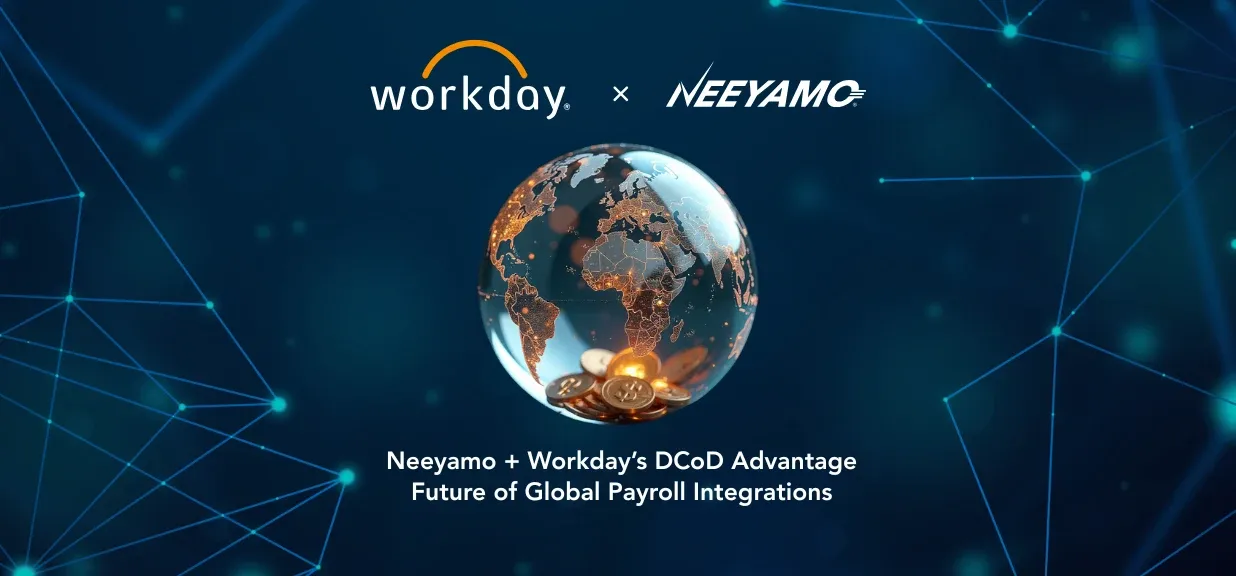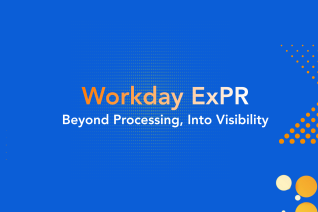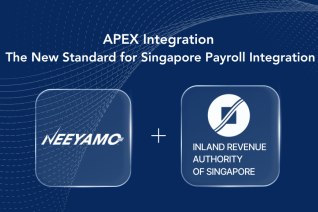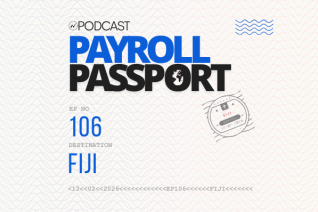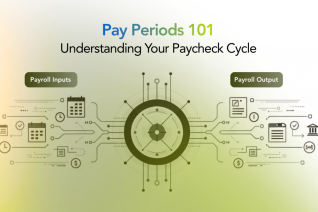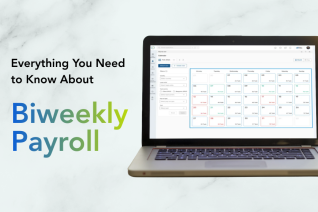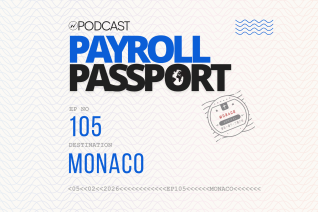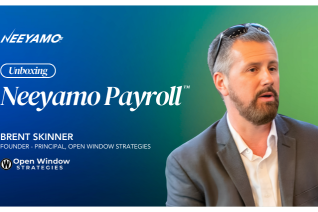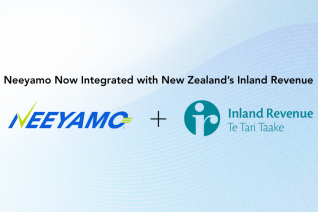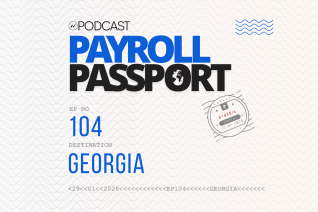In today’s borderless workplace, payroll isn’t just a process; it’s a platform for trust, agility, and innovation. It is a high-impact, compliance-critical process touching every employee and influencing employer brand, financial accuracy, and regulatory trust. Yet global payroll teams often struggle with fragmented data flows. Traditional integrations between human capital management (HCM) platforms like Workday and external payroll providers typically depend on batch exports, rigid schedules, and pre-defined data interpretations. As workforce change accelerates, new hires, cross-border transfers, and flexible work models, these limitations become bottlenecks to agility and accuracy.
Workday’s Data Changes on Demand (DCoD) represents a paradigm shift. By moving from scheduled, file-based data transfers to on-demand synchronization, API-driven access, DCoD equips payroll administrators and integration partners to manage change at the speed of business. This article takes a closer look at Workday’s Data Changes on Demand (DCoD): its features, its impact on global payroll, and how Neeyamo’s ongoing journey with Workday reflects the evolution of payroll integration on a global scale.
The Legacy Challenge: Schedule-Based Integrations
Traditionally, global payroll systems rely on scheduled data feeds from Workday. These “push” integrations are designed around:
- Pre-scheduled runs: Often nightly or weekly, meaning downstream systems work with data that may already be outdated.
- File-based outputs: Large, rigid files (often XML or flat files) that require mapping and transformation.
- Workday-defined business logic: Payroll providers must adhere to Workday’s interpretation of staffing events, codes, and workflow logic.
While this approach worked in the early days of digital HCM, it no longer aligns with the pace or complexity of modern global payroll. When employee moves, promotions, or terminations occur mid-cycle, payroll teams often scramble to reconcile gaps between Workday’s records and payroll provider systems. The result: errors, compliance risk, and administrative overhead.
DCoD: Data on Your Terms
Data Changes on Demand (DCoD) rethinks the integration model entirely. Instead of Workday pushing pre-packaged files on a schedule, third-party payroll systems can “pull” exactly the data they need, when they need it. The engine for this transformation is a REST API, a modern, lightweight interface standard used across the web.
Key aspects of DCoD include:
- On-demand extraction: Systems can request data instantly rather than waiting for scheduled batches.
- Granular control: Organizations can retrieve full pay groups or isolate only the fields and time periods they require.
- Compact JSON format: Data arrives in a streamlined, widely adopted structure that simplifies integration and analysis.
This shift from rigid exports to dynamic queries marks a major step toward dynamic payroll orchestration.
ALSO READ | Workday PECI Certified: Neeyamo Extends Seamless Global Payroll Integration Across 100 countries
How DCoD Works: The Flow Simplified
1. In-house Request
Authorized payroll or downstream systems issue an HTTPS call to Workday’s DCoD API endpoint.
- The request typically contains authentication credentials (OAuth 2.0 or Workday-specific tokens).
- Parameters define the scope of the extract, including employee populations, pay groups, effective date ranges, and desired data segments.
- Requests can be event-driven (triggered by a change) or scheduled to run at defined intervals.
2. Secure Processing & Data Extraction
Workday validates the request, applies access controls, and queues the data extraction job for processing.
- Data is extracted on demand from Workday’s transactional database.
- Only authorized data sets are prepared to comply with security and privacy requirements.
- Workday can return either incremental changes (field-level deltas) or full data snapshots, depending on configuration.
ALSO READ | Workday Data Changes on Demand: Revolutionizing Global Payroll Integration
3. Job Completion & Notification
When the extraction job is complete, Workday generates a job status update.
- A callback/notification (such as a webhook or polling response) is sent to the requesting system.
- This allows downstream systems to respond automatically without manual intervention.
4. Data Retrieval
The third-party system then retrieves the prepared data payload directly from Workday.
- Data is delivered in standardized JSON format for easy parsing and system-to-system integration.
- This may include transactional changes, complete data sets, or accompanying documents (like pay slips or tax forms).
- Data retrieval can be automated via scripts, middleware, or integration platforms.
This model mirrors modern cloud data practices, enabling integration partners to architect workflows that are responsive, event-driven, and highly automated.
Features That Matter
DCoD offers several features designed to solve longstanding pain points in payroll integrations:
Secure Access via OAuth
DCoD uses industry-standard OAuth authentication, ensuring only registered API clients can interact with the data.
Field-Level Change Detection
Instead of scanning entire data sets, payroll systems can pinpoint exactly what changed since the last run—saving bandwidth and improving accuracy.
Full Snapshot and Change Stack
Users can retrieve current values as of a specific time (“effectiveTo”) or pull the full stack of effective changes within a given range. This creates a complete audit trail.
Flexibility of Interpretation
By delivering raw data rather than Workday’s pre-interpreted outputs, DCoD allows payroll providers to apply their own business rules, regulatory logic, and localized processing.
Notifications and Documents
Beyond data, DCoD enables third-party systems to be alerted when jobs are complete and to retrieve associated documents via the same API framework.
Why DCoD Matters for Global Payroll
1. Agility and Responsiveness
In a global organization, payroll administrators must adapt quickly to workforce events, cross-border transfers, benefit changes, or mid-cycle adjustments. DCoD lets payroll platforms query Workday on demand, ensuring the most up-to-date data drives payroll calculations and compliance.
2. Enhanced Accuracy and Compliance
By accessing field-level changes directly, payroll systems reduce the risk of missing critical updates. This is especially vital for compliance across multiple jurisdictions, where even a single incorrect data point can create penalties or reputational harm.
3. Reduced Integration Overhead
Traditional scheduled exports often require manual reconciliation or complex transformation layers. With DCoD’s JSON output, integration becomes cleaner, faster, and easier to maintain, lowering IT costs and shortening deployment timelines. This can be leveraged by extracting raw data and translating it according to each organization’s payroll needs and system requirements (as well as statutory requirements), ensuring every integration is both accurate and compliant.
4. Global Scalability
As organizations expand into new countries, DCoD’s flexible model allows them to integrate additional payroll partners without redesigning their entire data flow. Each provider can query only what’s relevant for their region, while maintaining a unified Workday core.
ALSO READ | Workday Data Changes on Demand: Revolutionizing Global Payroll Integration
Strategic Impact: Beyond Just Payroll (Business Use Case)
Although DCoD is designed with payroll integration in mind, its implications extend further:
Data Warehousing and Analytics
Organizations can leverage on-demand access to feed data into analytics or compliance dashboards.
Employee Experience Platforms
Benefit portals, time-tracking systems, or mobility platforms can all tap into the same API for unified employee data, reducing duplication.
Innovation Ecosystem
By exposing granular, secure data via REST APIs, Workday enables a broader ecosystem of partners and developers to build value-added services much like open banking transformed financial services.
Best Practices for Leveraging DCoD
Assess Data Governance and Security
OAuth ensures secure access, but internal policies must define which third-party systems can retrieve what data.
Map Business Rules Carefully
Because DCoD provides raw data, payroll teams and vendors must align on how to interpret staffing events, compensation changes, and tax logic.
Automate Event-Driven Workflows
Use DCoD’s notifications to trigger downstream processes automatically, minimizing manual intervention.
Monitor Performance and Costs
Although DCoD streamlines data flow, on-demand calls should be optimized to avoid redundant queries.
Neeyamo: Powering Seamless DCoD Adoption
This evolution is not just about technology but about expertise. Neeyamo, as a Workday Global Payroll Certified Partner, has been at the forefront of enabling seamless integrations powered by DCoD. With its extensive experience managing payroll across 160+ countries, Neeyamo bridges the gap between Workday’s capabilities and the nuanced requirements of global payroll.
By leveraging Neeyamo’s payroll orchestration platform and deep integration knowledge, enterprises can:
- Design secure, OAuth-enabled data flows.
- Map raw Workday data to country-specific payroll rules.
- Automate notifications and downstream processes.
- Scale their payroll operations as their workforce grows or regulatory environments shift.
In essence, Neeyamo transforms DCoD from a powerful API into a tangible operational advantage.
Looking Ahead: The Future of Global Payroll Integration
Workday’s Data Changes on Demand (DCoD) marks a shift from batch processing to on-demand data synchronization, from rigid integrations to open APIs, and from single-vendor logic to customizable ecosystems.
For global payroll leaders, this means payroll can evolve from a reactive compliance task into a strategic data hub powering workforce intelligence.
Combined with next-generation payroll orchestration platforms, DCoD delivers:
- Continuous compliance monitoring across jurisdictions
- Seamless employee experiences with instant updates to pay and benefits
- Greater operational resilience through modular, easily maintained integrations
More than a technical upgrade, DCoD is a strategic enabler. It gives payroll and integration partners control, immediacy, and flexibility, turning data movement into a competitive advantage.
The takeaway: Embracing DCoD is not just keeping up with technology; it’s future-proofing global payroll operations.
Ready to Transform Your Global Payroll? Discover how Neeyamo leverages Workday’s DCoD to deliver seamless, compliant, and scalable payroll solutions across 100+ countries. Contact irene.jones@neeyamo.com.
